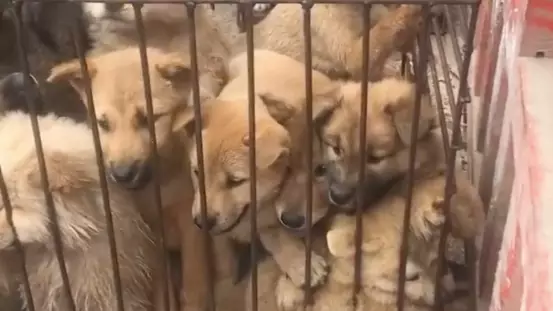
*Warning: This article contains information, videos and images that some people may find distressing.*
Activists are sharing pictures from the ground in Yulin, China, where the annual Dog Meat Festival is ongoing.
The 10-day slaughtering spree started on 20th June, and it is predicted that anywhere between 3,000 and 5,000 dogs will have tragically been killed for meat by the end of tomorrow (30th June).
The festival takes place every year around the summer solstice, and always prompts outcry from animal charities, with big media campaigns and rescue missions on the ground.
Advert
While this year was a little different, with less volunteers and media coverage because of Covid-19, No To Dog Meat have a small team of volunteers at hand to save as many dogs as they can.
And they've been documenting the heartbreaking scenes day-by-day, and sharing pictures and videos of the animals they managed to rescue on their way to the festival, as well as those who weren't so lucky.
Speaking to Tyla the charity's CEO, Julia de Cadenet, says: "It's worse than you can imagine it to be, it really is.
"The things we uncovered... we discovered a dog farm - and China has always maintained it doesn't have dog farms, but it's in the countryside, 40 miles or so from Yulin.
Advert
"We went down there and it has just been really really grim. There were grown men [on our team] crying.
"We've had to decide who to save and who we couldn't save, and for our Chinese team its just been really distressing.
"Something that haunts me is that [there's a video] at the dog farm and they're still wagging their tails. They're still hopeful that someone might come and get them."
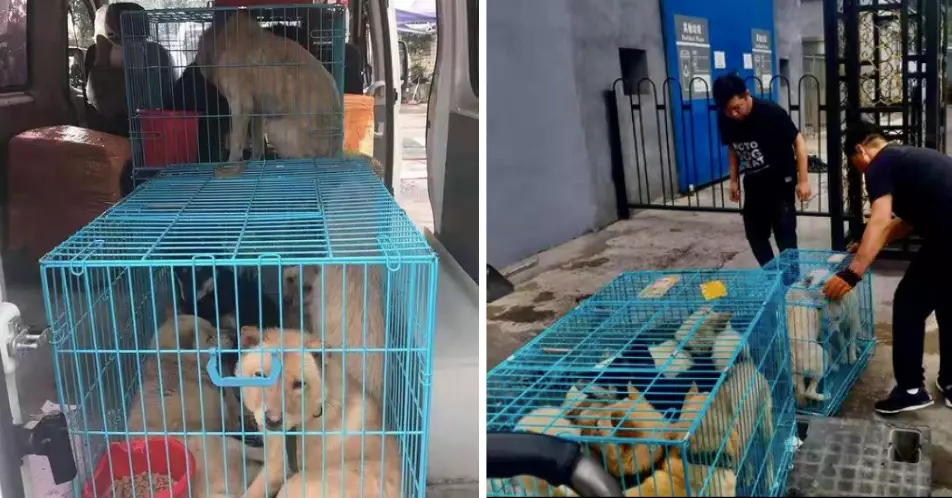
Advert
Unfortunately, until there is major regulatory change from within China, many of the dogs meet horrible fates all year round - especially when the festival is on.
But charities and activists do have several ways of saving a select few animals before they're slaughtered.
"We do things like stop trucks on the highway. You will see trucks laden with dogs, and we get shout-outs [on social media] for normal people - not specialists in anything - to corner the truck, and try to expound it, and if we're lucky secure the release of the dog," Julia explains.
"We use legal loopholes - whatever you transport you need paperwork, so if we can prove they don't have that then whatever they're carrying is illegal."
Advert
Meanwhile, at slaughterhouses and puppy farms, volunteers will attempt to negotiate with the people that work there to release a select few dogs.
One example saw Chinese volunteers who volunteered for No To Dog Meat save a cage of pups from a slaughterhouse - heartbreakingly, some of the dogs they rescued were even pregnant.
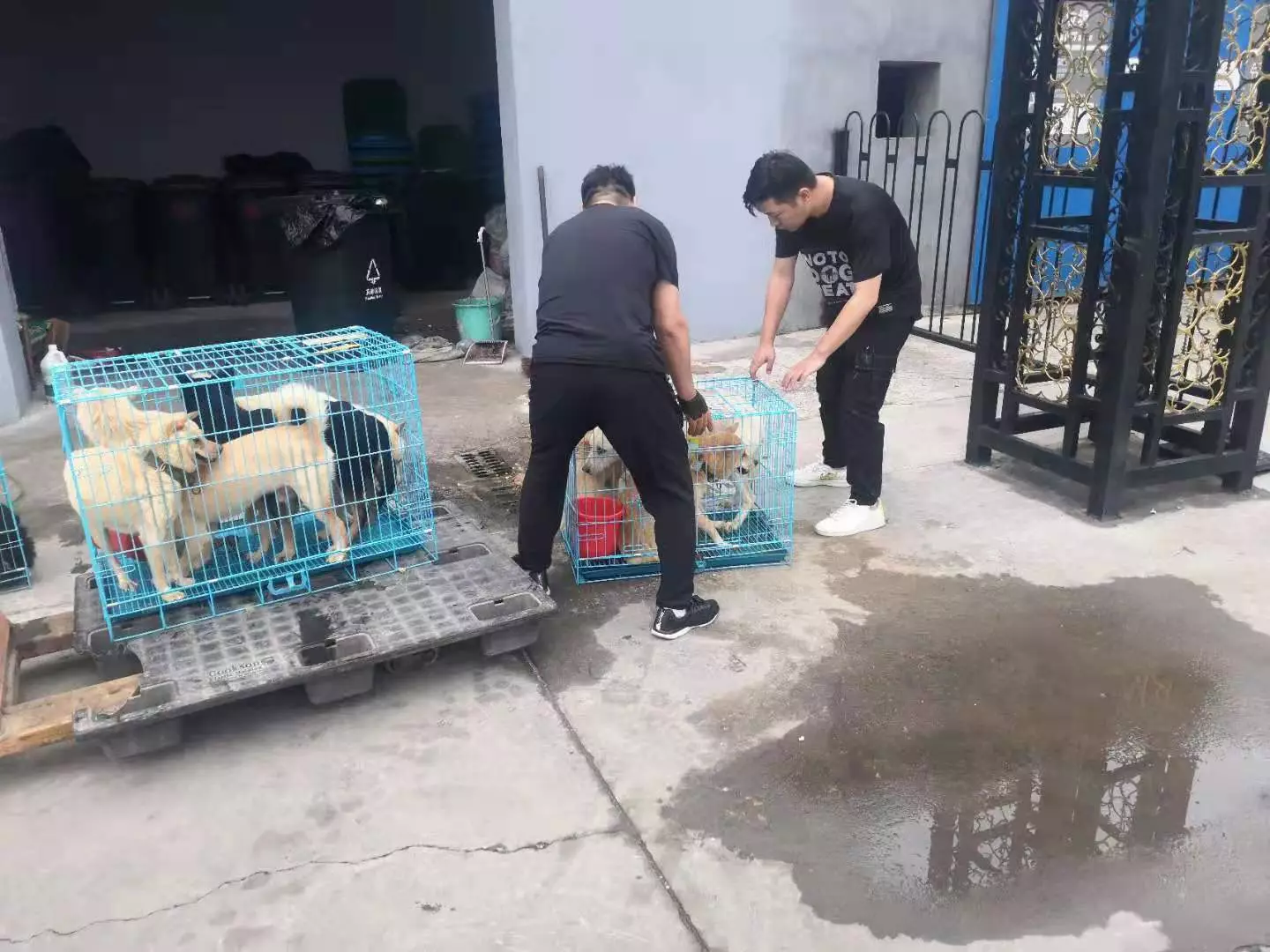
The journey back to safety in Beijing was a long one, and took as long as two days, with lots of police checks and van changes in between.
Advert
"The dogs are really sick, 10 of them are in critical condition, literally riddled with infectious diseases," Julia reflects, but hopefully, with the right medical care, as many as possible will now have a chance at survival.
"Our 21 Yulin Angels will now be cared for at four different animal hospital," the charity wrote on Instagram. "They will join our truck rescue, and we will do everything we can to make sure they survive."
Fellow do-gooders in the area also tracked down 68 dogs in tiny cages in Guangxi ahead of the festival - many with collars, who exhibited behaviours that suggested they were once household pets. As the rescuers approached, some of the animals begun to reach out their paws and attempt to interact.
These animals had been forced to endure a tedious road trip without food or water and were stuffed into a cage so tightly that they couldn't move.
Luckily, they were rescued and sent on a long journey to a veterinary facility in Beijing, to be nursed back to health, before being sent to a No To Dog Meat shelter.
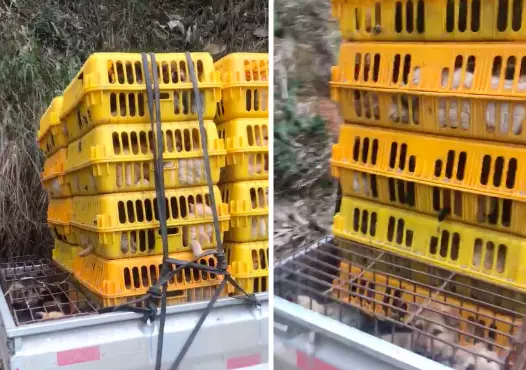
Eating dogs and cats is still seen as culturally acceptable in many areas of China, and it is estimated that around 10 million dogs were killed there last year for human consumption.
At wet markets, dog meat is typically sold in cans, sausages, and roasted or barbecued.
As well as the obvious ethical concerns around eating dogs, there are now growing health concerns, too, amid the backdrop of the Covid-19 pandemic.
Back in February last year, China banned all trade and consumption of wild animals temporarily, after learning that the pandemic may have resulted from a bat to human viral transfer.
Cities like Shenzhen and Zhuhai have now fully banned eating of dogs altogether following Covid-19, and they were granted 'companion status' across the country - a move which many thought would signal the end of their slaughter. Due to Covid, dogs must also no longer be killed in the street.
However, Julia says the scenes at the festival today are still "incredibly cruel" and "miserable".
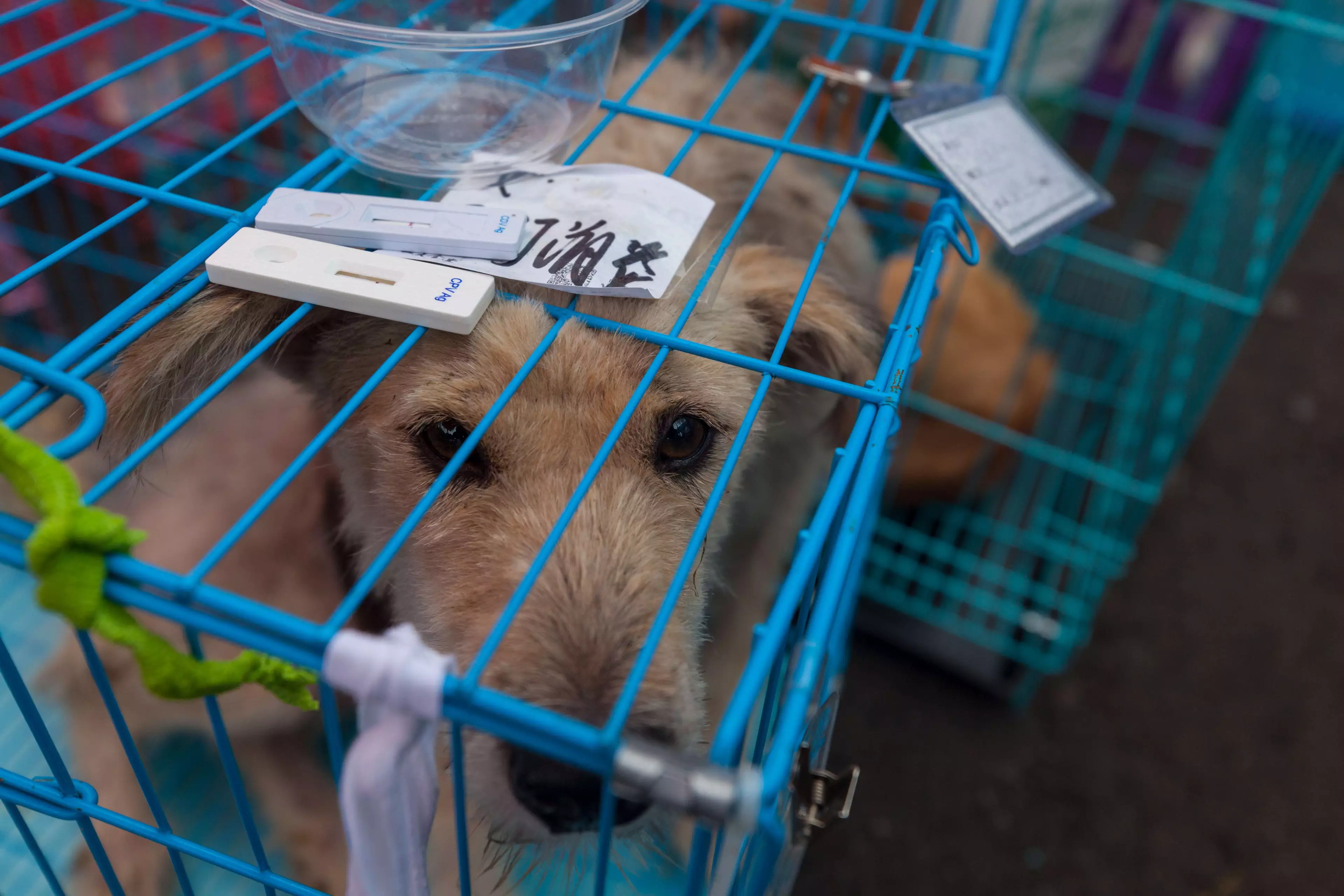
Speaking about the festival last week, Prime Minister Boris Johnson said: "The British public would rightly never support the slaughter and consumption of dogs.
"We have robust laws in place to protect the welfare of dogs in this country. It's already illegal here and we have no evidence that this type of meat is being sold or consumed in the UK.
"We're confident that the current position in this country sends a clear message that the slaughter and consumption of dogs or cats will never be acceptable."
No To Dog Meat first begun in 2011, after lawyer Julia saw the killings and "couldn't get them out of [her] head".
As well as working on the ground, the charity now has two shelters in China; it's opening another in Cambodia and it's doing lots of work with locals, students and women's groups to educate people about dogs and dispel myths about them being 'scary' or dangerous.
You can support No To Dog Meat by donating to their fundraiser here and visiting their website here.
Featured Image Credit: Instagram/ No To Dog MeatTopics: Dog, Pets, No-Article-Matching, Animals